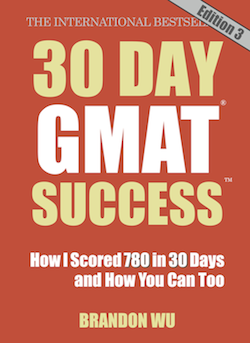Staying Healthy Throughout GMAT Prep
Staying healthy during your GMAT preparation
How well you perform on the GMAT is about more than just the number of hours you spend studying a GMAT prep book or how many practice tests you go through. Your GMAT preparation needs to be dedicated, precise, results-oriented, and holistic. You need to prepare your mind, body, and psyche if you want to really nail it and get the score you need and want. One of the most important parts of that process is staying healthy.
Courtesy of meals.com
There’s a reason they give out granola bars and juice on standardized test day in elementary school. Educators know that peak physical condition is key to peak mental performance. And, while it might seem overly-simplistic and obvious, there are three key areas you need to drill into your daily routine if you’re going to prep effectively and test effectively.
Diet, brain food, and GMAT preparation
If you want to study effectively and if you want to make the best of your GMAT preparation time, you need to eat right. Get rid of saturated fats and sugars. Those kinds of empty calories can gunk up your brain. Rely on complex carbohydrates, proteins, and plenty of leafy green veggies. Those foods help you stay focused and give you the energy you need for the long haul of GMAT preparation.
Exercise your body to hone your mental skills
Regular exercise reduces stress – and GMAT preparation brings with it plenty of stress. It gets rid of your nervous energy and turns it into highly-focused mental acuity. Exercise releases those precious endorphins, which not only improve your mood and focus, but are thought to help with memory. Your GMAT preparation plan needs to have a physical fitness component to match the mental fitness regimen.
Don’t Lose Sleep
Cramming through late-night GMAT preparation sessions is counter-productive. Your brain needs rest just as much as your body. Studies show that students of any sort who get the recommended amount of sleep for their age category tend to perform significantly better in standardized testing. There is also emerging evidence that suggests that the work of memory – critical in your GMAT preparation success – is only fully realized when we’re asleep. Your brain actually goes to work for you when you’re asleep, solidifying the information you’ve studied and helping to retain it.
Like so many other things in life, it’s the basics that matter. GMAT preparation is less about the specific content you study than it is about how you approach your preparation, and staying healthy is key if you’re going to hit the score you want to hit.

